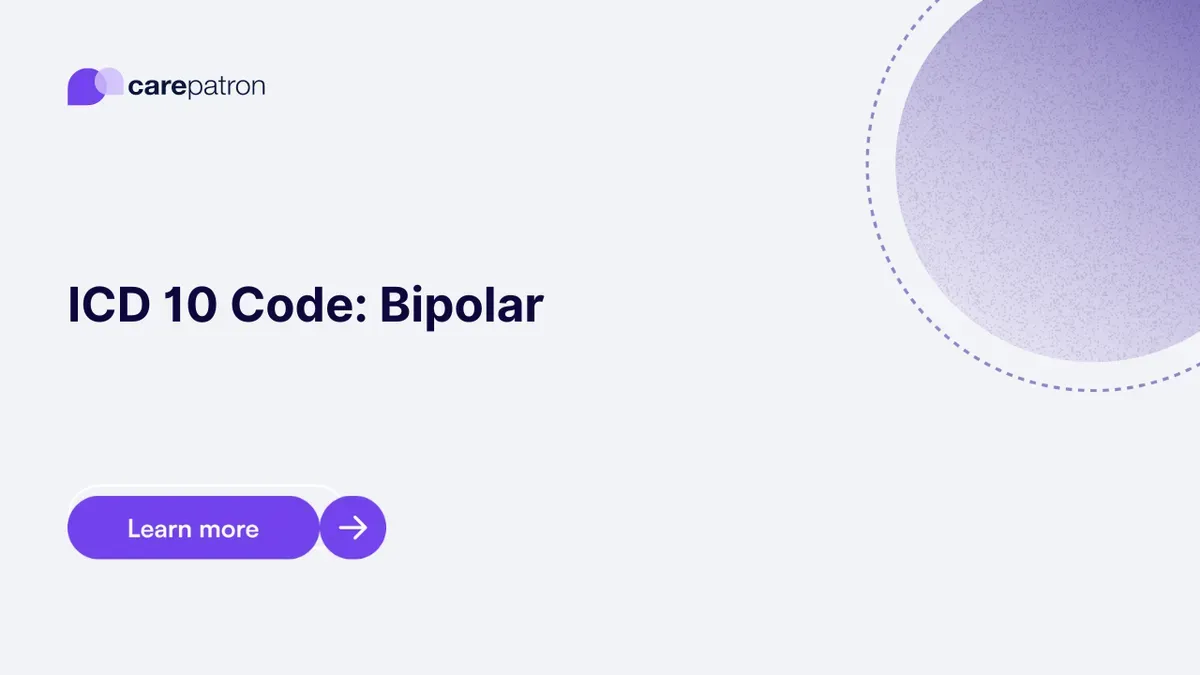
Bipolar ICD-10-CM Codes
Dive into the ICD-10-CM codes about bipolar disorder, fundamental for exact medical documentation, insurance billing, and therapeutic strategies for 2023.
Use Code
Commonly asked questions
A Bipolar ICD code should be used when a patient is diagnosed with bipolar disorder, characterized by periods of mania and depression.
Common treatments for bipolar disorder include mood stabilizers (like lithium), antipsychotic medications, antidepressants, psychotherapy, and sometimes hospitalization during severe episodes.
A diagnosis code for Bipolar Disorder denotes a mental health condition where an individual experiences extreme mood swings, from manic highs to depressive lows.
EHR and practice management software
Get started for free
*No credit card required
Free
$0/usd
Unlimited clients
Telehealth
1GB of storage
Client portal text
Automated billing and online payments
